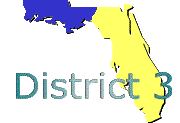| 1.0 | TRAVEL AND TRAFFIC MANAGEMENT |
| 1.5.2 | TSI shall include an Information Access function that allows travelers to access the available information. |
| 1.5.2.5 | Information Access shall provide the capability for travelers to access the TSI information via any of, but not limited to, the following methods: |
| 1.5.2.5(a) | Highway advisory radio. |
| 1.6 | TRAFFIC CONTROL |
| 1.6.0 | ITS shall provide a Traffic Control capability. Traffic Control provides the capability to efficiently manage the movement of traffic on streets and highways. Four functions are provided which are (1) Traffic Flow Optimization, (2) Traffic Surveillance, (3) Control Function, and (4) Provide Information. This will also include control of network signal systems with eventual integration of freeway control. |
| 1.6.1.2.1 | Wide area optimization shall integrate the control of network signal systems with the control of freeways. |
| 1.6.1.4 | Flow optimize shall include a Control function that is responsive to both the current demand as well as the expected demand. |
| 1.6.2 | Traffic Control shall include a Traffic Surveillance function. |
| 1.6.2.4 | Traffic Control shall provide the capability to acquire detailed traffic measurements at specific locations. |
| 1.6.2.4.1 | Traffic Surveillance shall include a Data Process function to process the traffic data which are acquired. |
| 1.6.3 | Traffic Control shall include a Control Function. |
| 1.6.3.2 | The real-time traffic-adaptive control portion of the Control Function shall be an area wide control to include several jurisdictions. |
| 1.6.3.2.2 | The area wide control shall be implemented in a manner that permits the following types of vehicles to have preference over other vehicles being controlled. |
| 1.6.3.2.2(b) | HOV. |
| 1.6.3.3 | The Device Control Function shall provide the capability to exercise control over those devices utilized for traffic control. |
| 1.6.3.3.1 | Device Control shall include the capability to control traffic signalization, including rapid modification of signalization parameters to respond to traffic requirements. |
| 1.6.3.3.2 | Device Control shall include the capability to control dynamically traffic signing. |
| 1.6.3.3.3 | Device Control shall include the capability to control freeway ramp metering. |
| 1.6.3.3.4 | Device Control shall include the capability to exercise dynamic control over the infrastructure (such as reversible-lanes, turning restrictions, etc.). |
| 1.6.3.4 | Device Control shall communicate control data to the following devices. |
| 1.6.3.4(d) | HOV lanes. |
| 1.6.3.4.1 | Traffic Surveillance shall include a Data Process function to process the traffic data which are acquired. |
| 1.7 | INCIDENT MANAGEMENT |
| 1.7.0 | ITS shall include an Incident Management (IM) function. Incident Management will identify incidents, formulate response actions, and support initiation and ongoing coordination of those response actions. Six major functions are provided which are (1) Scheduled Planned Incidents, (2) Identify Incidents, (3) Formulate response Actions, (4) Support Coordinated Implementation of Response Actions, (5) Support Initialization of Response to Actions, and (6) Predict Hazardous Conditions. |
| 1.7.4 | Incident Management shall provide the capability to predict the time and location of hazardous conditions that may cause an incident. |
| 1.8 | TRAVEL DEMAND MANAGEMENT |
| 1.8.1 | TDM shall include a communications function. |
| 1.8.1.2 | The communications function shall include the capability to send information and rates needed to implement management and control strategies that respond to changing environments, conditions, and policy needs to include, but not limited to, the following locations of action: |
| 1.8.1.2(b) | HOV lanes. |
| 1.8.1.3 | TDM shall provide the capability to receive information and rates needed to implement management and control strategies that respond to changing environments, conditions, and policy needs to include, but not limited to, the following locations of action: |
| 1.8.1.3(b) | HOV lanes. |
| 1.8.2 | TDM shall include a processing function. |
| 1.8.2.11 | The processing function's dynamically generated management and control strategies for parking management and controls shall be based on factors that include, but are not limited to, the following: |
| 1.8.2.11(b) | Usage data. |
| 1.8.2.4 | The processing shall provide the capability generate guidance for the pricing and control for locations of action that include, but are not limited to, the following: |
| 1.8.2.4(b) | HOV lanes. |
| | |




